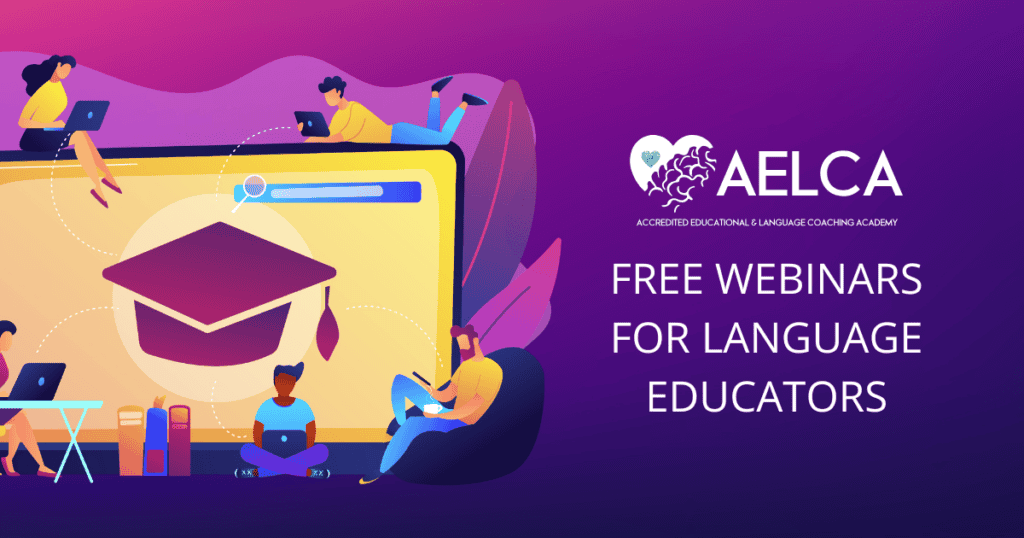
FREE WEBINAR DATES COMING UP...
Please scroll down the page to find the webinar you would like to register for.
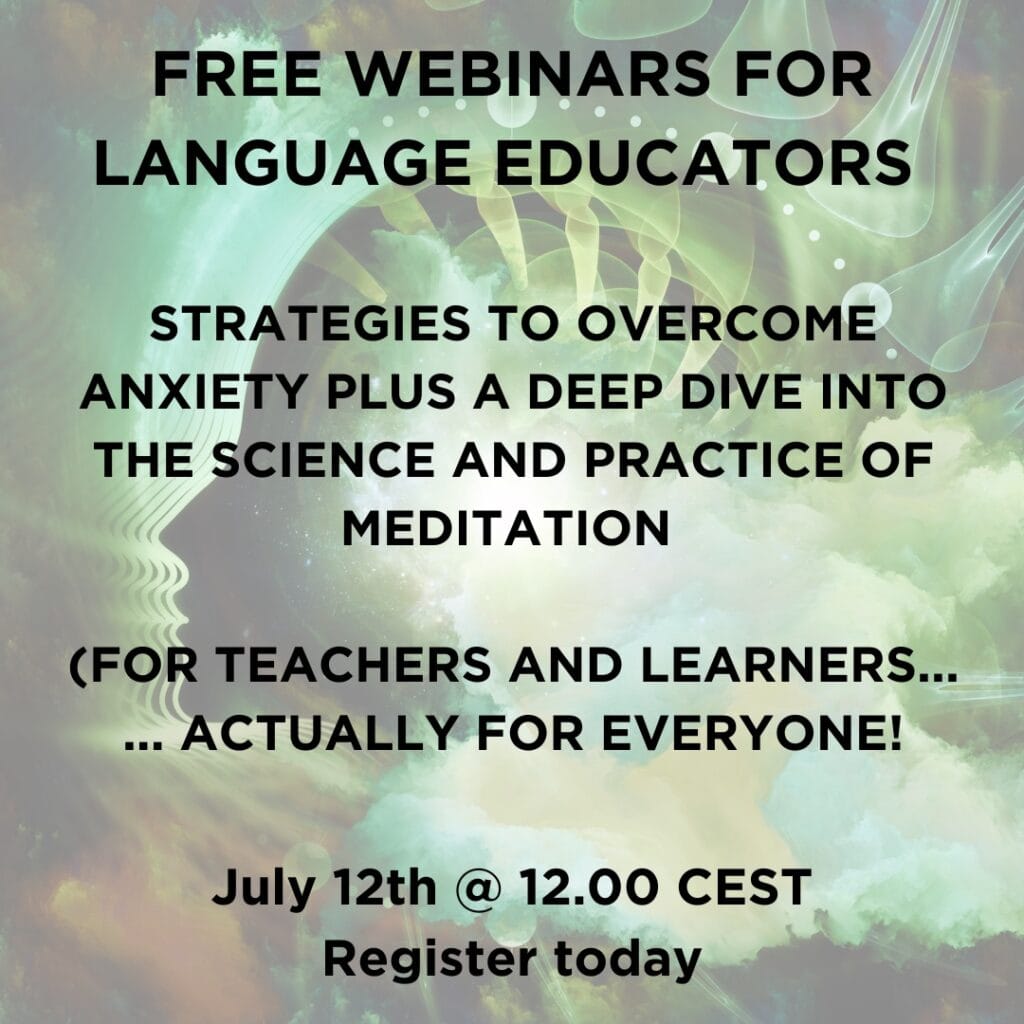

July 12th @ 12:00 CEST
Strategies to overcome anxiety plus a deep dive into the science and practice of Meditation (for teachers and learners – actually for everyone!)
How can we help keep our learners calm? Firstly, we have to be sensitive enough to recognise indications of stress or anxiety and heighten that sensitivity. Secondly, using professional coaching conversations we need to understand how to share information about our physiological reactions and then create calming strategies with our learners.
One of the greatest ways to transcend into more calmer states is Meditation. We will explore what this is and what it means for different people? Is there a difference between mindfulness and meditation? What about the neuroscience behind meditation? What studies share the impact of meditative practices on each and every one of us? What about brainwaves and meditation ?
Join me for this ground- breaking webinar which so many of you requested 😊
Let’s journey into this topic to surf the waves of our brain and fully understand how to harness meditation to achieve more focused learning states.
Use the form below to register...
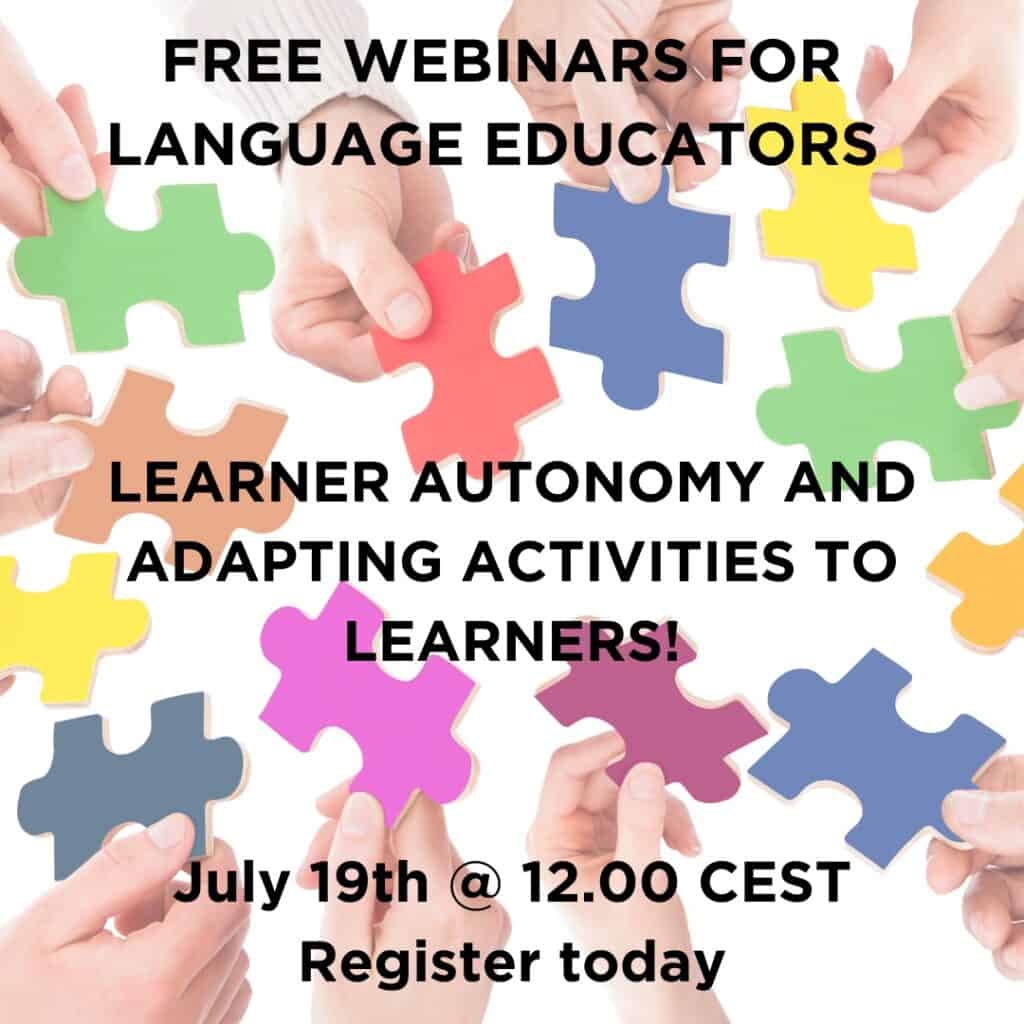

July 19th @ 12:00 CEST
Learner Autonomy and adapting activities to learners!
From Self-Determination Theory to Intentional Change Theory, we will track the trajectory of learner autonomy through the last 50 years. We will talk about how learners have changed, how our brains have changed and now how teachers are changing, adjusting and adapting to the learners of today!
We will explore the neuromyth “learning styles” and harness “science of learning”, but also asking how to honour the individuality and unicity of each and every brain. How Professional coaching can be the means of communicating with our learner to harness their autonomy and introduce choice and preference all the way through the learning process.
Use the form below to register...
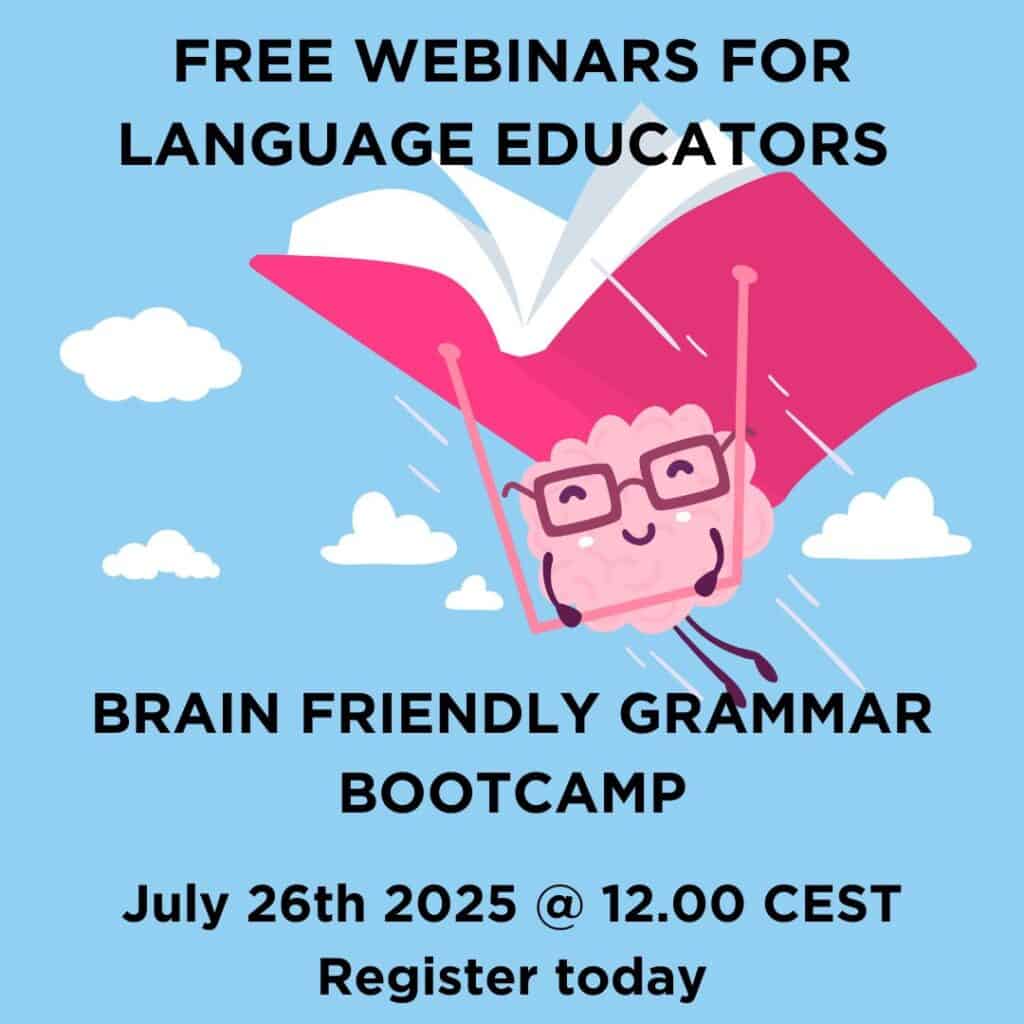

July 26th @ 12:00 CEST
Brain Friendly Grammar Bootcamp
Grammar – most learners hate it! Brain friendly grammar distils neuroscience and professional coaching into a simple spoken conversation, harnessing the ideal conditions for absorbing the mechanics of language. In this way, grammar is discussed and explored with the learner in a calm brain friendly conversation. By using the PACT PQC coaching model, language educators will totally transform grammar.
This webinar will focus on how to shift grammar conversations by using a coaching model and integrating principles from neuroscience and neuropsychology. The main focus is how to get learners to be curious and to scaffold from previous knowledge as well as bringing then to understand the reasons for grammar and be able to use and apply it instantly.The conversation focuses on constant interaction between coach and coachee and no more long explanations about grammar, but rather getting the coachee to create bigger pictures and then break down and build up the grammar into bitesize chunks.
We will look at creating a breakdown which can then be used as the “roadmap” through the conversation and then how to deliver this roadmap using the PACT PQC model, which stands for Placement, Assessment, Conversation, Teach, Powerful Questions and Clarification. Each part of the model will be explained and the participants will try out and practise this with an example grammar area. The model focuses on interaction, enjoyment and non-stressful learning, allowing learners to feel supported, listened to and guided at all times. No two grammar conversations will be the same, as each learner will be different and the coach will always be adapting to the individual or group he/she is working with each time.
Use the form below to register...
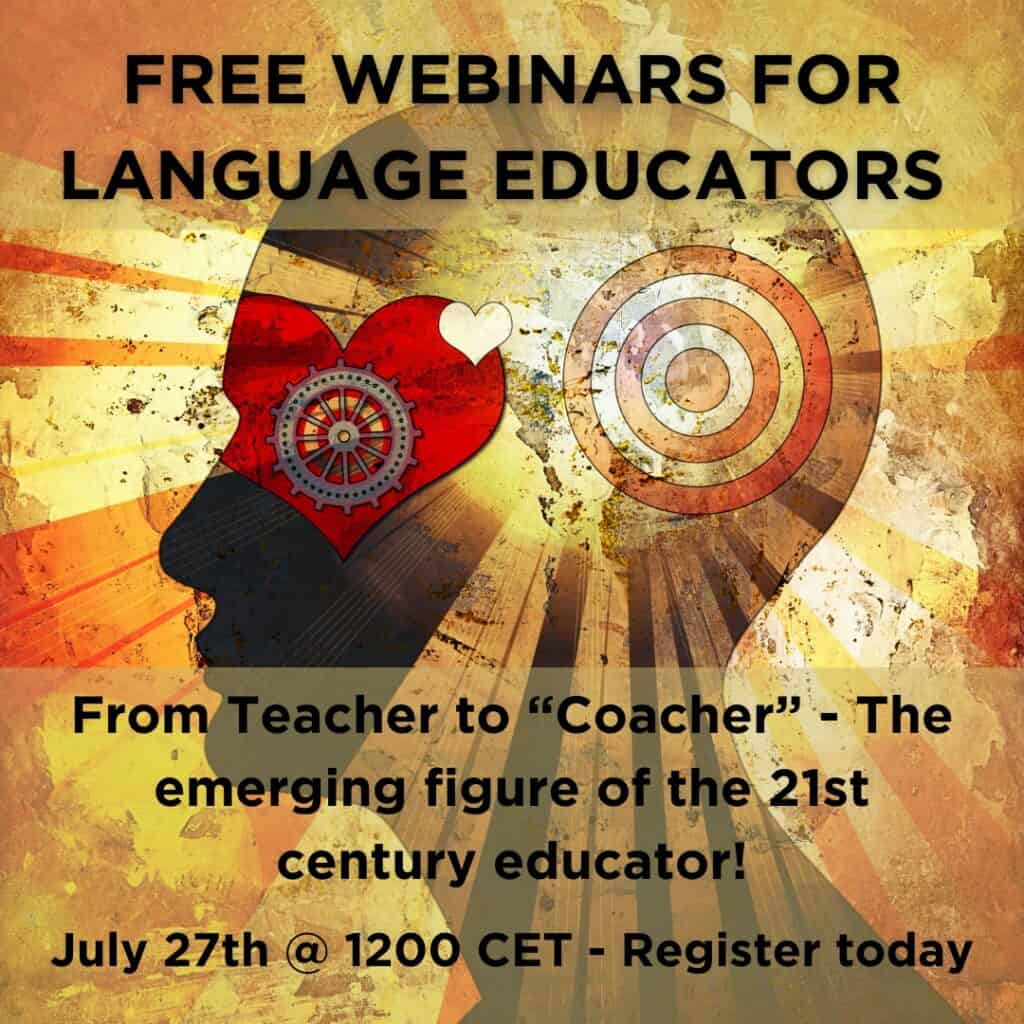

July 27th @ 12:00 CEST
From Teacher to "Coacher" - The emerging figure of the 21st century educator!
What are the skills required to be an educator in 21st century? How can we adapt not only to the learners of today but also to the technology and AI that is rapidly steaming into our lives. Stepping up on our humanness – what does it mean? This webinar will explore how empathy, compassion, emotional intelligence can enhance sensitivity with language learners.
Years ago there was a film with Robert Redford called the Horse Whisperer: the man who could diagnose, understand and seamlessly work together with horses! Increasing our capacity to listen and understand the deeper underlying issues and questions for language learners is key, not only to build trust and comprehension but also to be able to diagnose language difficulties or areas to develop and adapt to each and every learner and his/her differences in learning.
Developing a sixth sense to connect with clients on a deeper level will lead to a more profound learning experience. In this webinar we will deep dive to understand how to reach this “compassionate level” through compassionate coaching conversations. Professional coaching, incorporating the competences of the International Coach Federation and the skills, principles and philosophy of coaching can shift the way we communicate with our learners into a more brain friendly, calmer space that facilitates and promotes learning.
Plus metacognition. In a study in 2019, teaching metacognition at schools involved self-regulated learning, thinking skills and learning to learn and benefitted primary to university students as well as disadvantaged and struggling learners. The results demonstrated better performance, improved outcomes and a positive motivation cycle – “greater motivation leads to improved metacognition which leads to greater motivation”.
Talking and sharing neuroscience and neuroscientific findings has also demonstrated an impact on learners. In a 2007 study, it was shown that when students understand how the brain learns, how neuroplasticity changes the brain and how they can be autonomous learners, then their results and achievements increase.
Shaping and creating learning processes that implement and incorporate neuroscientific findings, a more brain-friendly process is then achieved.
Use the form below to register...
More dates for webinars coming soon
Is there a webinar subject you would like to see again? Is there a subject that would help you? Perhaps a subject we haven’t covered. We’d be delighted to hear your feedback on what webinar subjects would help you most. Please email the team at [email protected] with your suggestions.